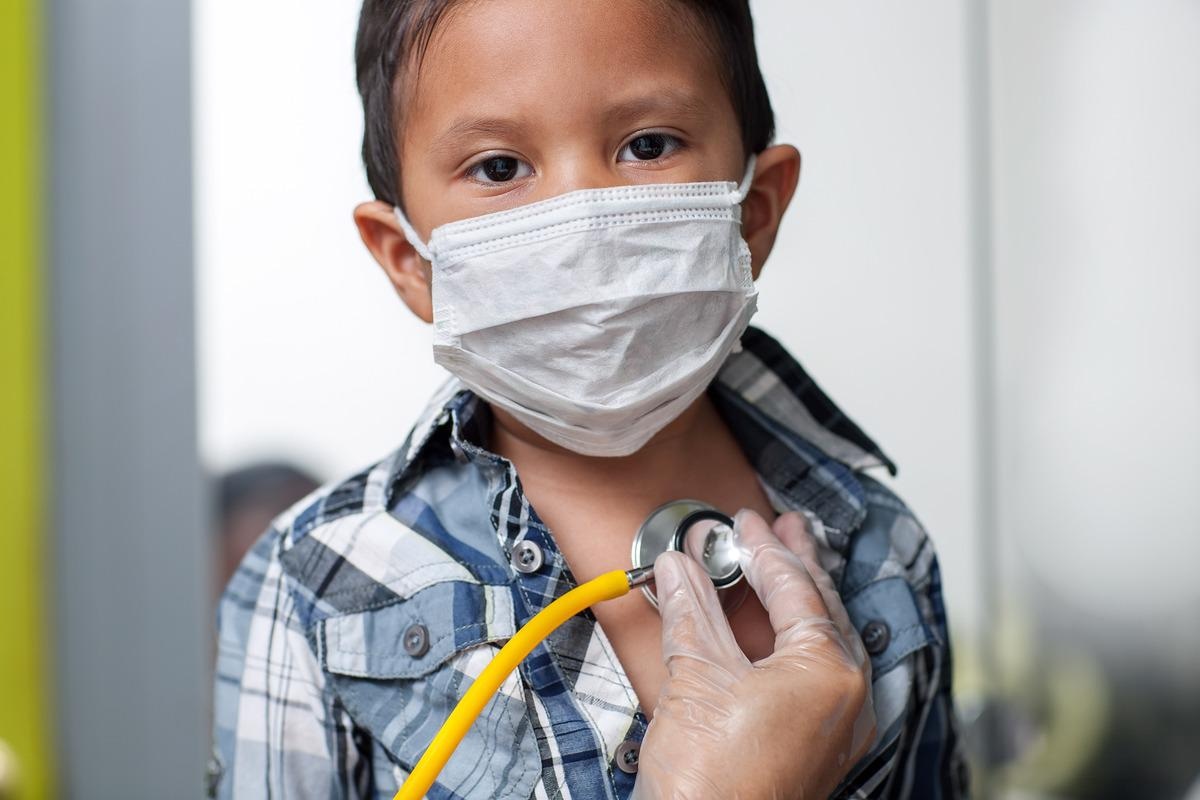In a study posted to the medRxiv* preprint server, a team of researchers from the United States (US) conducted a retrospective cohort study to determine if pediatric acute upper airway infection (UAI) was more common during the surge of the Omicron (B.1.1.529) strain of severe acute respiratory syndrome coronavirus 2 (SARS-CoV-2) in the US.
 Study: Acute upper airway disease in children with the omicron (B.1.1.529) variant of SARS-CoV-2: a report from the National COVID Cohort Collaborative (N3C). Image Credit: Marlon Lopez MMG1 Design/Shutterstock
Study: Acute upper airway disease in children with the omicron (B.1.1.529) variant of SARS-CoV-2: a report from the National COVID Cohort Collaborative (N3C). Image Credit: Marlon Lopez MMG1 Design/Shutterstock
About the study

 This news article was a review of a preliminary scientific report that had not undergone peer-review at the time of publication. Since its initial publication, the scientific report has now been peer reviewed and accepted for publication in a Scientific Journal. Links to the preliminary and peer-reviewed reports are available in the Sources section at the bottom of this article. View Sources
This news article was a review of a preliminary scientific report that had not undergone peer-review at the time of publication. Since its initial publication, the scientific report has now been peer reviewed and accepted for publication in a Scientific Journal. Links to the preliminary and peer-reviewed reports are available in the Sources section at the bottom of this article. View Sources
SARS-CoV-2 can cause severe disease in children, including acute coronavirus disease 2019 (COVID-19) and multisystem inflammatory syndrome in children (MIS-C). The Omicron strain of SARS-CoV-2 has been the predominant circulating strain in the US since the last week of December 2021. Various studies suggested that the Omicron variant causes less severe disease than the Delta variant, with the hypothesis that Omicron replicates less effectively in lung parenchymal cells and more effectively in the bronchial airways.
Due to small and collapsible airways, young children are more vulnerable to acute upper airway infection (UAI), resulting in decreased airflow. Hence, in the pediatric population, the Omicron strain of SARS-CoV-2 may increase the risk of laryngotracheobronchitis, commonly known as croup.
Study design
In this study, data from the National COVID Cohort Collaborative (N3C) was used before and during the surge of the Omicron variant and transferred to the pediatric COVID-19 dashboard. Among the data of all children in N3C, only data of children less than 19 years of age with positive SARS-CoV-2 results and a diagnosis of croup or tracheitis was collected. Demographic features, clinical outcomes, and comorbidities of SARS-CoV-2 positive hospitalized children with and without UAI were compared using a suitable statistical method.
Findings
The researchers demonstrated that the highest number of pediatric SARS-CoV-2-positive hospitalized (N=32) and non-hospitalized (N=138) UAI cases in the US were observed during December 2021. During this period, 2.5% of total hospitalized cases had UAI. From the released data of 15,806 SARS-CoV-2-positive hospitalized children, 1.5% had a diagnosis of UAI.
Children with UAI were mostly male (59.8% versus 50.4%), white (54.7% versus 43.3%), younger (2.4 versus 10.1 years), and asthmatics (15% versus 10%). SARS-CoV-2-positive children with UAI developed severe disease with the need of vasopressors, invasive ventilation, extracorporeal membrane oxygenation (ECMO), and had even high mortality as compared to children without UAI (31.6% versus 13.5%).
Conclusion
During the surge of Omicron variant in December 2021 in the US, there was an increase in overall pediatric acute UAI cases, with nearly a third of affected children developing severe disease. Children with UAI with severe croup and tracheitis are at risk of cardiac arrest due to rapidly developed upper airway obstruction requiring intensive care.
This study showed that an enhanced understanding of this new clinical phenotype could help therapeutic decision-making and planning healthcare resources, especially when there is a severe strain on the healthcare system.
The limitations of the current study include diagnostic codes being present only for completed hospitalizations in N3C. Also, children who were still hospitalized were not included in the study.

 This news article was a review of a preliminary scientific report that had not undergone peer-review at the time of publication. Since its initial publication, the scientific report has now been peer reviewed and accepted for publication in a Scientific Journal. Links to the preliminary and peer-reviewed reports are available in the Sources section at the bottom of this article. View Sources
This news article was a review of a preliminary scientific report that had not undergone peer-review at the time of publication. Since its initial publication, the scientific report has now been peer reviewed and accepted for publication in a Scientific Journal. Links to the preliminary and peer-reviewed reports are available in the Sources section at the bottom of this article. View Sources